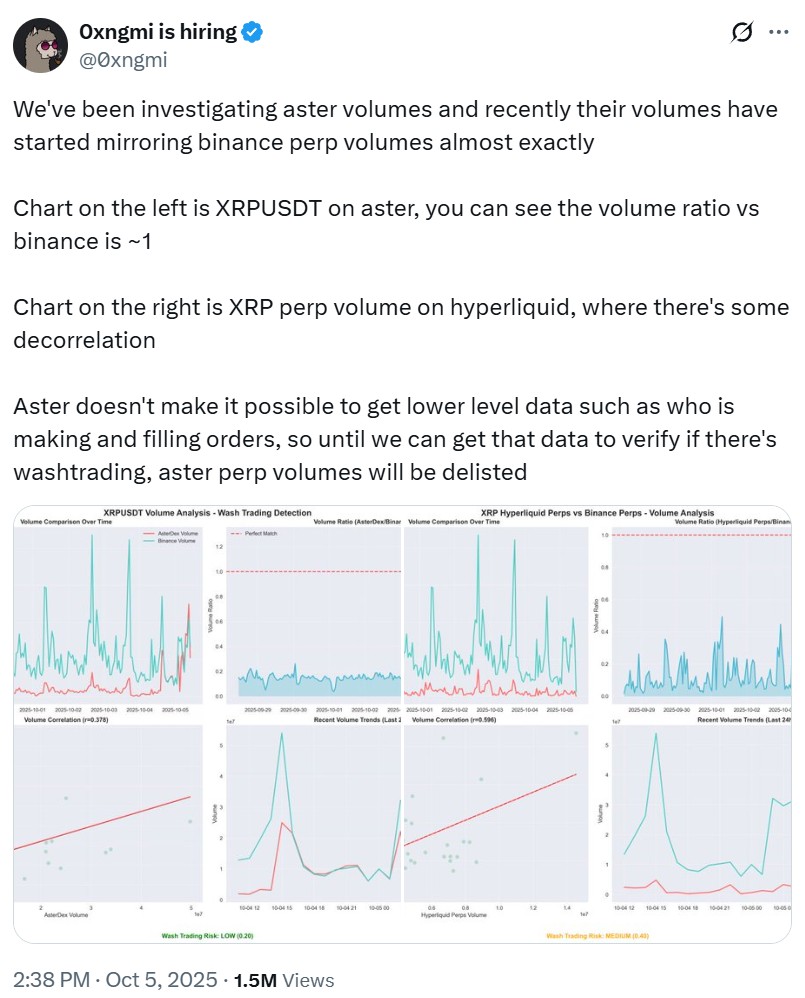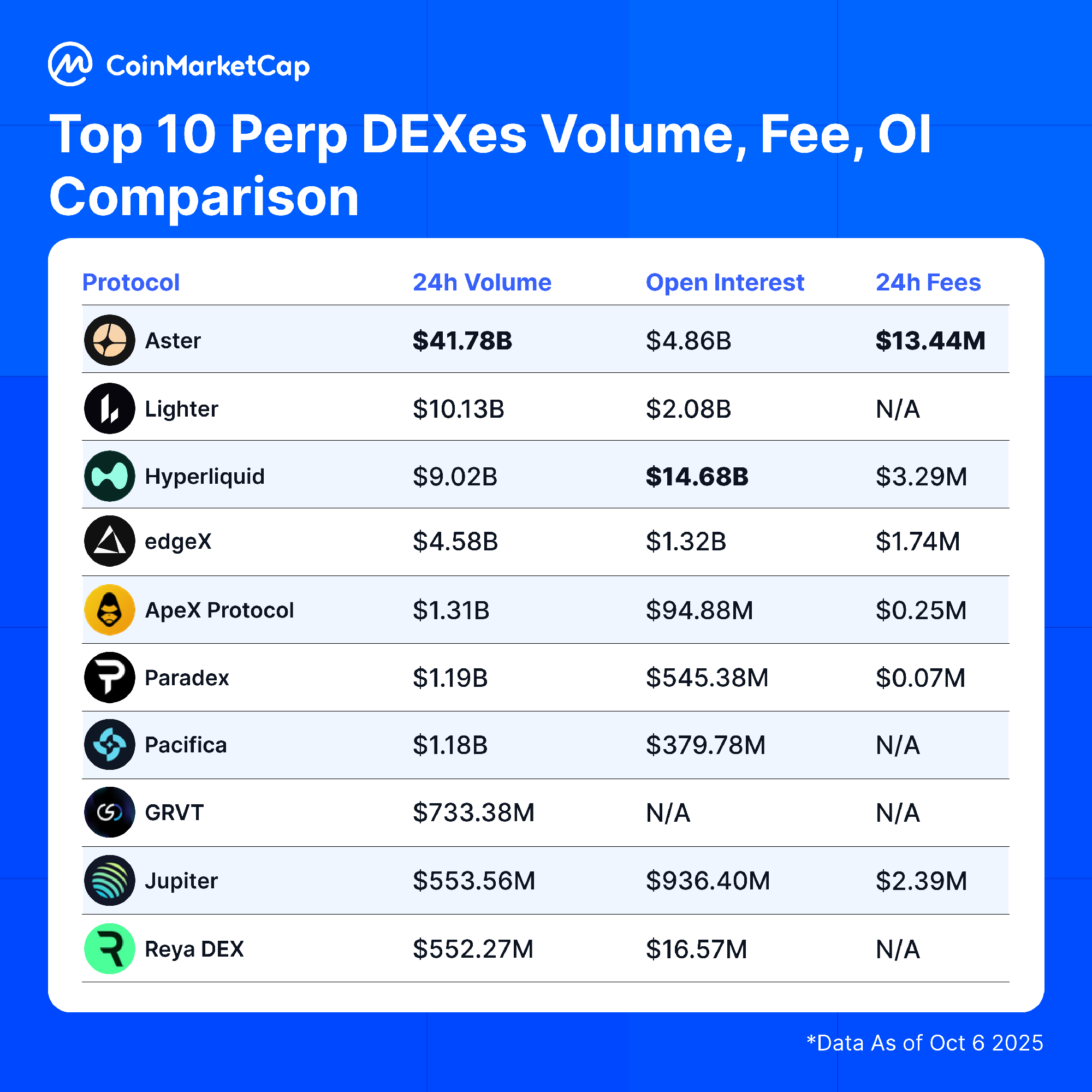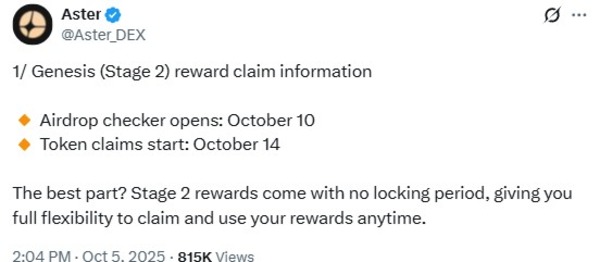
Aster's Delisting Highlights Integrity Issues in DeFi Sector
The removal of Aster from DefiLlama underscores growing concerns regarding data integrity in decentralized exchanges (DEXs).
Overview
The recent delisting of Aster from DefiLlama has brought crucial attention to the integrity of data presented by decentralized exchanges (DEXs). Aster, a DEX associated with YZi Labs, had recently gained significant trading volume, surpassing Hyperliquid, a notably successful entity in the crypto landscape.
Background
On Sunday, DefiLlama’s founder, 0xngmi, announced via X that the trading volume reported by Aster was suspiciously similar to that of Binance’s perpetual market, leading to its removal from their site.
This decision has sparked a wider conversation about the influence of data aggregators. Some supporters of Aster have accused DefiLlama of centralization, while others doubt the authenticity of Aster’s rapid growth.
 DefiLlama delists Aster following data integrity concerns. Source: 0xngmi
DefiLlama delists Aster following data integrity concerns. Source: 0xngmi
Aster’s Volume and the Controversy
Aster achieved impressive numbers, leading all DEXs with $41.78 billion in 24-hour trading volume according to data from CoinMarketCap, while Hyperliquid followed with over $9 billion.
Despite the impressive figures, Aster was unreachable for comments on the delisting.
Greg Magadini, from Amberdata, noted that many exchanges are impacted by wash trading and inflated activity, usually stemming from users trying to gain advantages for airdrops.
 Aster records more than four times Hyperliquid’s 24-hour trading volume. Source: CoinMarketCap
Aster records more than four times Hyperliquid’s 24-hour trading volume. Source: CoinMarketCap
Rising Concerns Over Volume
On Tuesday, a user on X, Dethective, brought attention to five wallets responsible for trading $85 billion on Aster over the previous month. While some wallets appeared to be trading normally, at least two were suspected of manipulation for airdrop credits.
 Aster has allocated a total of 53% of its tokens to airdrops, which are currently progressing in phases. Source: Aster
Aster has allocated a total of 53% of its tokens to airdrops, which are currently progressing in phases. Source: Aster
The Broader Impact
Inflated trading volume can often arise from bots executing rapid trades, posing as legitimate activity. Aster’s case serves as a reflection of ongoing struggles in identifying authentic engagement in decentralized finance (DeFi).
This dilemma raises questions on how traders interpret volume data and trust in the metrics offered by various platforms, showcasing the intricate dynamics present in the fast-evolving DeFi domain.
Most of crypto’s volume comes from perpetual futures. Source: CoinGlass
Conclusion
The events surrounding Aster’s removal from DefiLlama highlight the fragility of trust in market data. With the continuing evolution of DeFi platforms, authenticating trading volume remains crucial in ensuring integrity and transparency within the cryptocurrency space.



